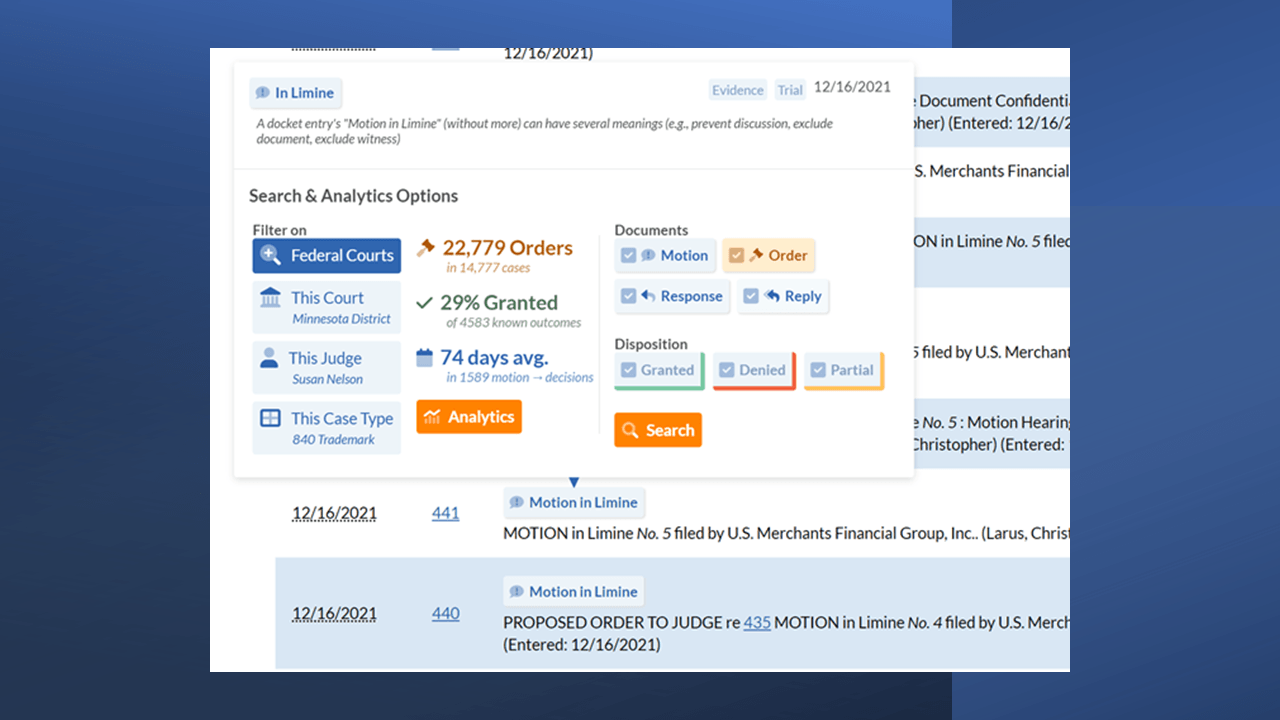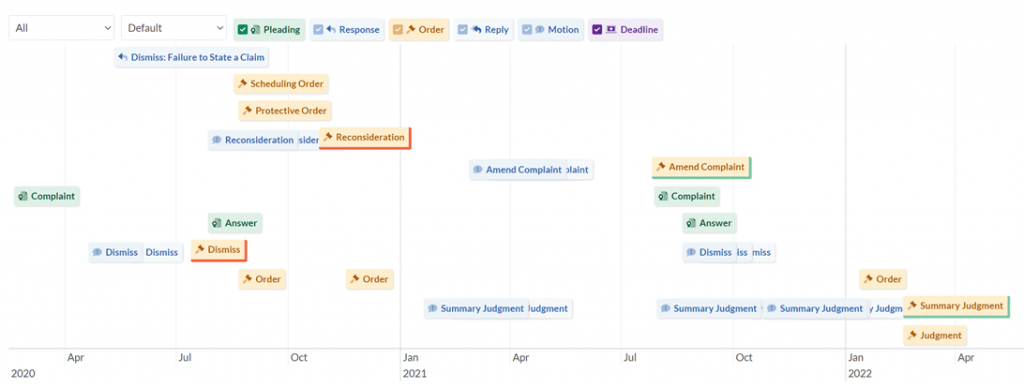When legal research company Fastcase announced its acquisition of Judicata, the innovative California legal research platform, in 2020, it held out the promise of building on Judicata’s innovations through integrations with Docket Alarm, another Fastcase-owned product that mines federal and state court dockets to provide litigation alerts and case-prediction analytics.
In a major update to its platform being released today, Fastcase is beginning to deliver on that promise with the first of several planned Judicata-based product offerings — analytics showing how often federal motions are granted and how long different judges take to rule.
A future release will expand these analytics to state courts, Fastcase says.
“These analytics, across every case type in federal courts, for the first time allow lawyers to understand the likelihood of success across broad ranges of pleadings and motions before different judges,” Fastcase says.
Using 200 types of pleading tags, the new feature uses natural language technology developed by Judicata to identify and tag federal pleadings and motions in the Docket Alarm library of more than 600 million briefs, pleadings, motions, orders and docket sheets, and it then uses these tags to create analytics and timelines.
In order to distinguish among types of motions and calculate timing, Docket Alarm tags and tracks the motion, the response, reply briefs, and the order on the motion, as well as non-motion pleading documents such as complaints and answers.
The 200 tags are drawn from the recently released SALI Open LMSS 2.0 standard developed by the SALI Alliance.
Using these analytics, Fastcase says, litigators can answer questions such as, “How likely is my motion to be granted?” “How long will it take?” “How are the chances different compared to a different district or with a different judge?”
Analytics are displayed as interactive graphs, histograms, and tables, and can be filtered by case type, jurisdiction, judge, party and more.
A timeline tool filters cases into an interactive timeline display. Fastcase says this makes it easier to review complex case dockets by distilling them into a visualization of important litigation events.
Today’s release also adds search-by-motion and search-by-outcome features that allow users to find winning motions, filtered by jurisdiction, case type, or judge.
Fastcase will also employ these pleading tags in its Law Street Media news service, including by enabling readers of news stories to view integrated Docket Alarm analytics, such as in this example.
Fastcase says these new analytics will be available to all users at no extra cost, and also to free users for up to 10 views per week. Docket Alarm users with standard monthly accounts will also be able to access search-by-motion features, while the federal analytics package requires an additional cost.
 Robert Ambrogi Blog
Robert Ambrogi Blog
